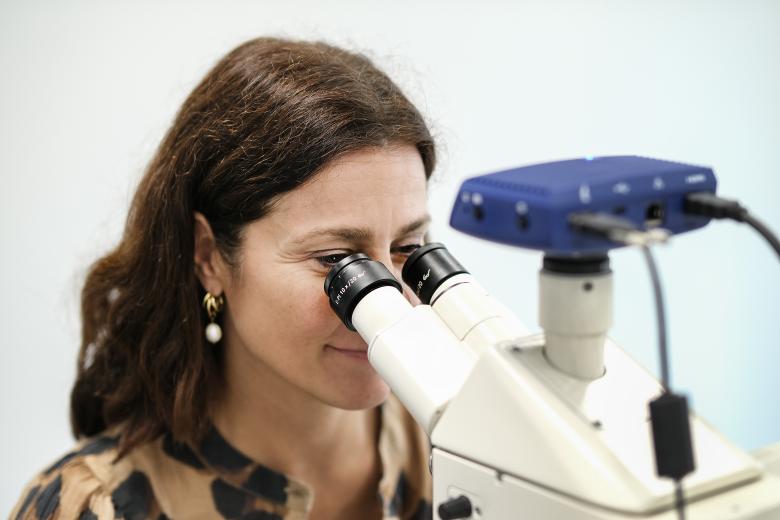Large scale collaboration to improve diagnosis of dementia
As part of the Dutch National Dementia Strategy, the large-scale research consortium entitled TAP-dementia launches today. TAP-dementia stands for Timely, Accurate and Personalized diagnosis of dementia. Researchers throughout the Netherlands collaborate to improve the diagnosis of Alzheimer’s disease and other types of dementia. This is of great importance for patients, families, and healthcare professionals.
With over 55 million patients worldwide, dementia is among the world’s largest health care challenges. Different brain diseases can cause dementia and identifying the specific disease underlying dementia can be a complex process. This is one of the reasons why it often takes years before a diagnosis is made. Sometimes no diagnosis is made at all - patients know they have dementia, but they don’t know which type. A good diagnosis is important, because it is the gateway to appropriate care and treatment. Knowing the cause of signs and symptoms is important for patients and families as they can then develop better understanding of what to expect, as well as learn how best to deal with the signs and symptoms of the disease.
Importance for drug development
An accurate diagnosis is also the starting point for developing effective treatment strategies. Thanks to the development of reliable biomarkers the diagnosis of Alzheimer’s disease has improved considerably. TAP-dementia aims to improve scalability and accessibility of AD diagnosis, as well as other types of dementia, such as vascular dementia, frontotemporal dementia, and Dementia with Lewy bodies. Some individuals can have more than one form of dementia. “For this reason we focus on mixed pathology, or the co-occurrence of more than one brain disease in the same person. Because we know this is very common.” Says prof Wiesje van der Flier, project lead of TAP-dementia. A good diagnosis is Timely (not too early and not too late), Accurate (precise and reliable), and Personalized (fitting with wishes and needs of patients and families). Together, this is ‘TAP’.
TAP-dementia: Timely, Accurate and Personalized diagnosis of dementia.
Five projects
Ten organizations have joined forces in TAP-dementia to complete five research projects. TAP-dementia studies how diagnoses fit best with the wishes and needs of patients and their families. Promising diagnostic tests for different types of dementia are evaluated in clinical practice. Finally, TAP-dementia develops novel tests, with the goal to refine the diagnosis and identify disease processes more precisely. In this way, the diagnosis of Alzheimer’s disease and other types of dementia is improved.
Alzheimer Centrum Limburg
The Alzheimer Center Limburg, together with the Amsterdam UMC, coordinates one of the five TAP research projects, namely TAP-PAT. In this project, the wishes and needs of people with dementia and their care partners during the diagnostic process are investigated. In addition, already existing diagnostic methods will be harmonized and first steps to the implementation of these methods in clinical practice will be taken.
Experience of people with dementia
Within the consortium, patients with dementia and their families play an important role. These individuals know the diagnostic trajectory better than anyone and they can help researchers understand where there is room for improvement. A group of people with dementia and their families can also ensure that researchers stay focused on the important issues and help to ensure that study findings are applied in clinical practice.
National collaboration
TAP-dementia is a Dutch national consortium, led by prof Wiesje van der Flier, scientific director of Alzheimer Center Amsterdam, Amsterdam UMC. The five Alzheimer centers (Amsterdam UMC – location VUmc, Erasmus MC, University Maastricht, RadboudUMC, UMC Groningen), UMC Utrecht, Amsterdam UMC – location AMC, Vrije Universiteit Amsterdam, Elisabeth TweeSteden Ziekenhuis, Vilans and the Dutch Memory Clinic Network participate in the consortium.
National Dementia Strategy
As part of the National Dementia Strategy 2021-2030, the Dutch Ministry of Health, Welfare and Sport has recommended to intensify research efforts on causes of dementia, diagnosis, young onset dementia, prevention, and innovative treatments of dementia. TAP-dementia is one of the consortia launched under the umbrella of the National Dementia Strategy, as part of Onderzoeksprogramma Dementie of ZonMW.
More information can be found on the website (in Dutch): TAP-dementia.nl.
Also read
-
Fresh air
Newly appointed professor Judith Sluimer (CARIM) talks about oxygen in heart functioning and the 'fresh air' the academic world needs.

-
GROW research: all-in-one test for genetic defects in embryos🧪
Researchers at Maastricht UMC+ and GROW have developed a technique that can analyse the entire genome in a single test, allowing for faster determination of embryos suitable for successful pregnancy.

-
Prestigious European grant for three UM researchers
Three researchers from Maastricht University (UM) will receive a prestigious ERC Starting Grant from the European Research Council. They will receive €1.5 million each. Their funding is part of the EU Horizon Europe programme.
